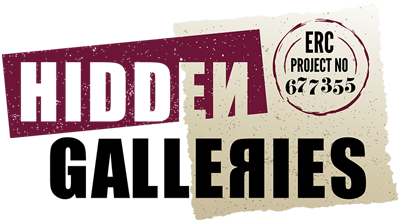Engaging the Margins: Ethnographic Practice and Religious Communities in Central and Eastern Europe
- Date 8 November 2018
- Venue New Europe College, Bucharest
The Hidden Galleries Annual Project Workshop was hosted by New Europe College in Bucharest on November 8th 2018. Many thanks to all our contributors, for the schedule see Hidden Galleries Bucharest 8th November Schedule and for more information on presentations and speakers biographies please see Hidden Galleries Workshop Brochure November 8th.
Workshop Outline
The papers in this workshop explore the complex relationships, entanglements and negotiations that shape ethnographic projects that engage marginal, minority and underground religious communities. Complex issues of access, representation, research ethics and participation become more acute when working with closed groups, with congregations that were once clandestine or with isolated communities. In such cases, the experience of being researched may echo an uncomfortable past of surveillance and persecution and much more may be at stake when new representations of a hidden past reach the public domain. The speakers in this workshop, members of the Hidden Galleries project team plus special invited guests, will present the challenges, rewards and results of their ethnographic and archival work on and with Old Believers in Romania, Muslims in Croatia, Romanian neo-protestants in Serbia, Greek Catholics and Hungarians in Transylvania, Orthodox dissenters in Ukraine, clandestine religious groups in Hungary, and Inochentists in Moldova.
The theme of the workshop informs the broader aims of the Hidden Galleries project which re-examines and re-contextualises the holdings of secret police archives in three countries; Romania, the Republic of Moldova and Hungary. The project draws scholarly and public attention to alternative uses and meanings of the archives in relation to the study of minority religions in the region. The secret police archives, in addition to containing millions of files on individuals and organisations monitored by the state, also constitute a hidden repository of religious art, publications, photographs and the ephemera of religious life confiscated by the secret police. The project, through its application of a range of approaches including archival historical and ethnographic studies and public exhibitions, offers a perspectival shift on the value and uses of the holdings of the secret police archives away from questions of historical “truth”, which have proven politically controversial and have given rise to numerous public scandals, to explore the creative agency of the religious underground and its representation by the state, the cultural patrimony of minority groups and ongoing societal debates on religious “otherness” in Central and Eastern Europe.
